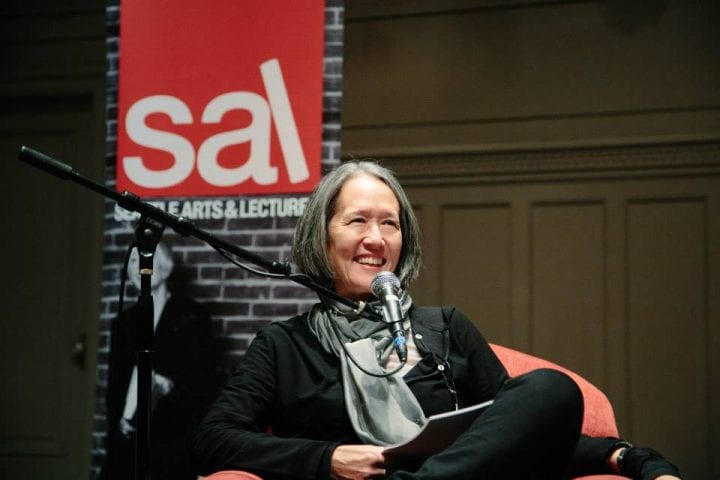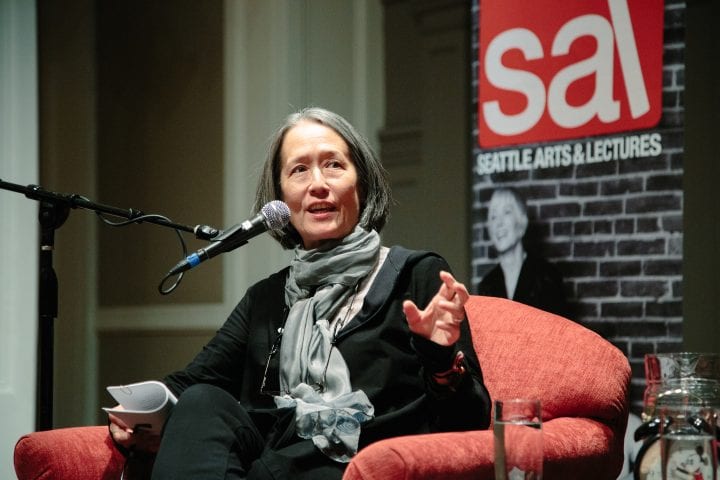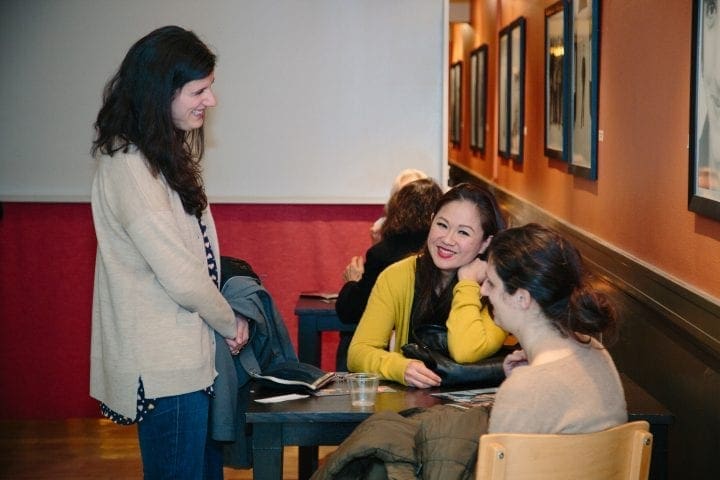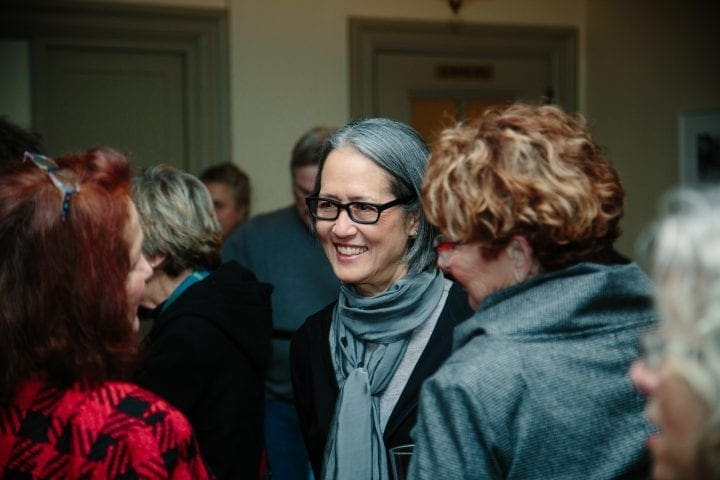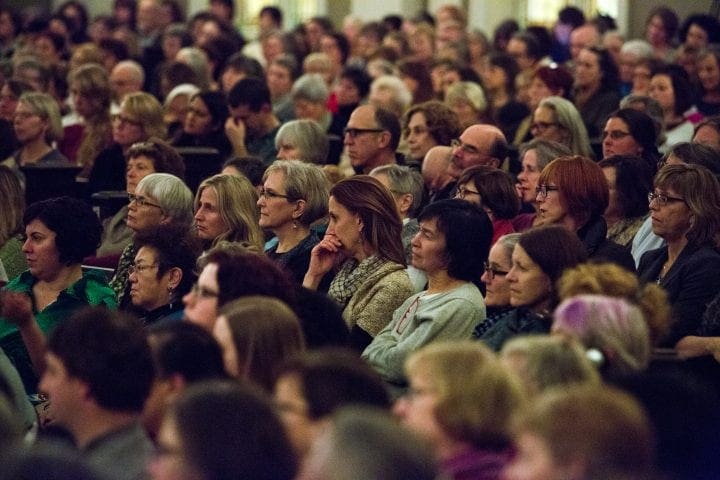Ruth Ozeki is a novelist, filmmaker and Zen Buddhist priest, whose award-winning novels have been described as “witty, intelligent and passionate” by the Independent, and as possessing “shrewd and playful humor, luscious sexiness and kinetic pizzazz” by the Chicago Tribune.
The daughter of a Japanese mother and a Caucasian-American father, Ozeki was born and raised in New Haven, Connecticut. She attended Smith College and graduated with degrees in English Literature and Asian Studies. She received a Japanese Ministry of Education Fellowship to pursue graduate work in classical Japanese literature at Nara Women’s University. During her years in Japan, she worked in Kyoto’s entertainment or “water” district as a bar hostess, studied Noh drama and mask carving, founded a language school, and taught on the faculty of Kyoto Sangyo University.
In 1985, Ozeki returned to New York City and started a film career as an art director, designing sets and props for low-budget horror movies, including little-known classics such as Mutant Hunt, Breeders, Necropolis and Robot Holocaust. She then switched to television production, directing documentaries for Japanese TV.
In 1994, she started making her own films. Body of Correspondence (1994) won the New Visions Award at the San Francisco Film Festival and was broadcast on PBS. Halving the Bones (1995), an award-winning autobiographical film, was screened at the Sundance Film Festival, the Museum of Modern Art, the Montreal World Film Festival and the Margaret Mead Film Festival, among others. Ozeki’s films are shown at universities, museums and arts venues internationally.
Her first novel, My Year of Meats, was published in 1998 by Viking Penguin and has garnered widespread glowing reviews, awards, and a still-growing readership. A sexy, poignant, funny tale about global meat and media production, My Year of Meats tells the story of Jane and Akiko, two women on opposite sides of the planet, whose lives are connected by a TV cooking show. Selected as a New York Times Notable Book, My Year of Meats was an international success, translated into eleven languages and published in fourteen countries. It won the Kiriyama Pacific Rim Award, the Imus/Barnes and Noble American Book Award, and a Special Jury Prize of the World Cookbook Awards in Versailles.
Ozeki’s second novel, All Over Creation (Viking Penguin, 2003) shifts the focus from meat to potatoes in a story of a family farmer, his prodigal daughter, an itinerant gang of environmental activists and a New Age corporate spin doctor, whose lives and interests collide in Liberty Falls, Idaho. In a starred review, Kirkus called this cast of characters “most fully realized and heart-wrenching in their imperfect yearnings,” and declared All Over Creation, “a feast for mind and heart.” Again a New York Times Notable Book, All Over Creation is the recipient of a 2004 American Book Award from the Before Columbus Foundation, as well as the Willa Literary Award for Contemporary Fiction.
Her most recent novel, A Tale for the Time Being (Viking Penguin 2013), was shortlisted for the Man Booker Prize and the National Book Critics Circle Award, and is the winner of the LA Times Book Prize and the Medici Book Club Prize, among others. Published in over thirty countries, it tells the story of a mysterious diary, which washes up on a beach on the Pacific Northwest coast of Canada in the wake of the 2011 Japanese earthquake and tsunami. The diary, written by a troubled schoolgirl in Tokyo, is discovered by a novelist named Ruth, who becomes obsessed with discovering the fate of the girl. The New York Times described it as an “intricate parable of a novel” which leads the reader “to contemplate the porous membrane that separates fact from fiction, self from circumstance, past from present.” In a starred review, Kirkus called it, “A masterpiece, pure and simple.”
In 2006, Ozeki received an honorary doctorate from Smith College. She has been a contributor to the New York Times op-ed page, and her essays and short fiction have appeared in a number of anthologies. She frequently speaks at colleges and universities. Ozeki serves on the Creative Advisory Council of Hedgebrook, a women’s writing retreat center on Whidbey Island, Washington, and on the Advisory Editorial Board of The Asian American Literary Review. Starting in 2015, she will be the Elizabeth Drew Professor of Creative Writing at Smith College.
A longtime meditator, Ozeki was ordained as a Soto Zen priest in 2010 by her friend and teacher, Zoketsu Norman Fischer, with whom she continues to study. She is affiliated with the Brooklyn Zen Center and the Everyday Zen Foundation, and is the editor of the Everyday Zen website. She is married to the German-Canadian environmental artist Oliver Kellhammer. A dual citizen of Canada and the United States, she divides her time between Cortes Island, British Columbia, and New York City.
